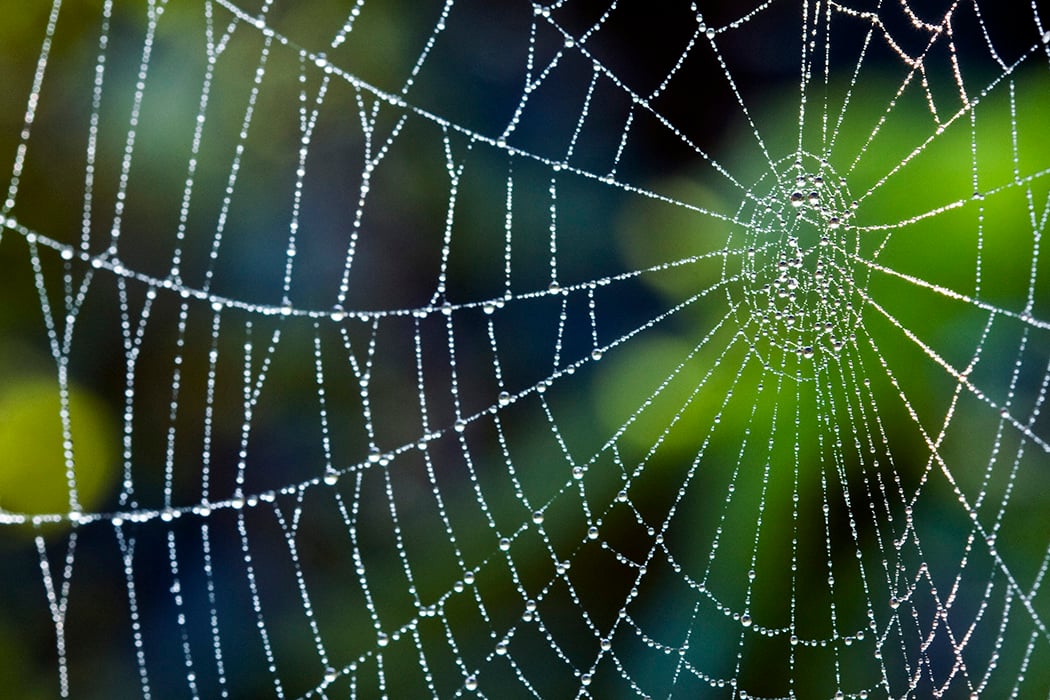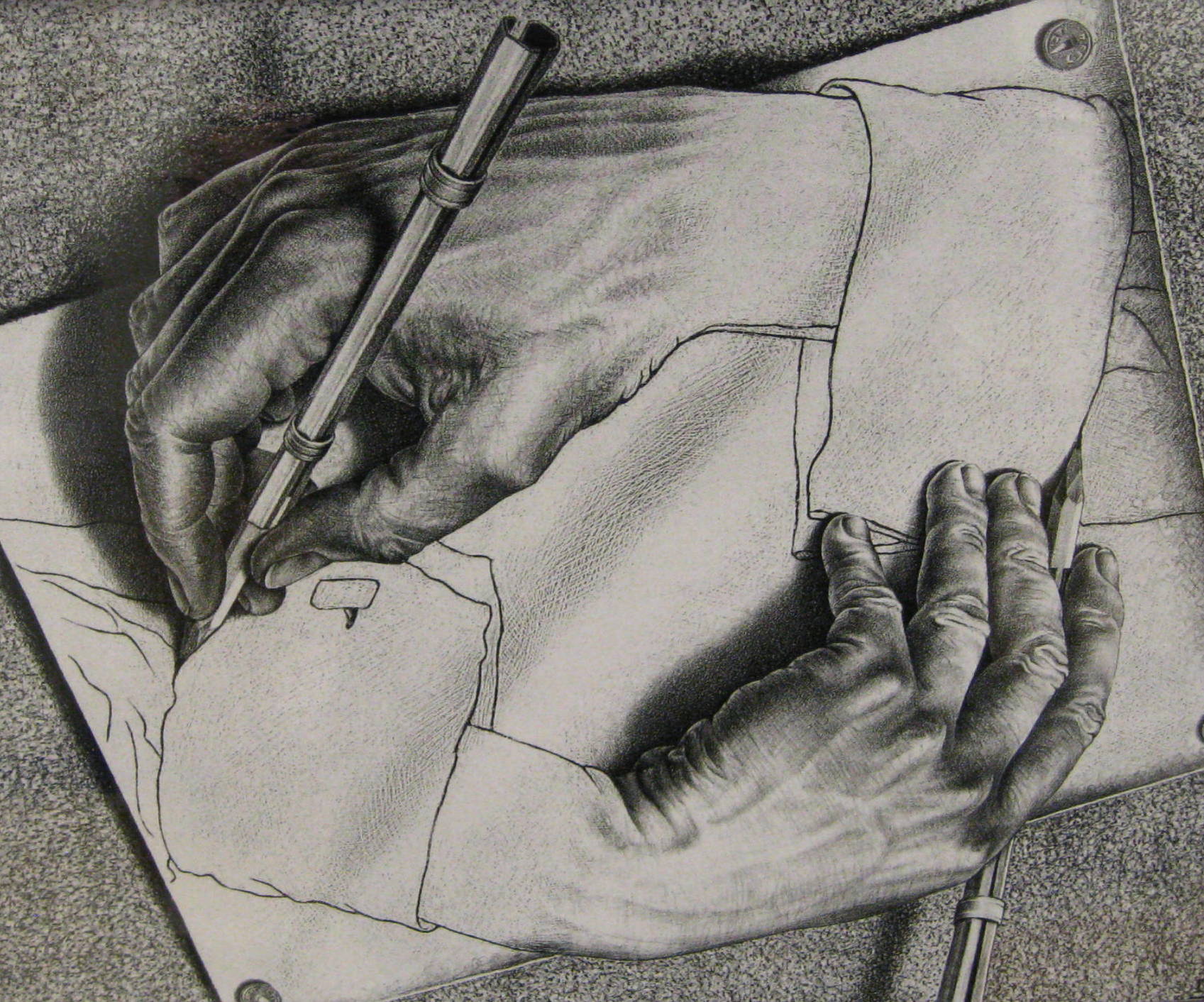Distinguishing (D) and Systematizing (S) Greebles
 Elena Cabrera
·
2 minute read
Elena Cabrera
·
2 minute read
This post was adapted from A Literature Review of the Universal and Atomic Elements of Complex Cognition.
Researching any of the four DSRP patterns requires some creativity. One way scientists have achieved this is through the creation of "Greebles." Greebles are computer generated 3D figures that are intended to be unfamiliar to participants.
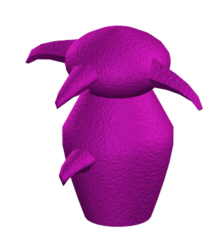 Figure 1: Example of a Greeble.
Figure 1: Example of a Greeble.
In 1997, Gautheir and Tarr (1) used greebles to research how people distinguished faces. They generated 60 Greebles which were broken down into five families and two genders based on their physical configuration.
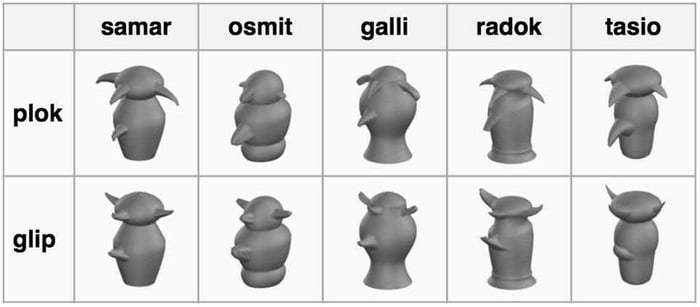 Figure 2: Five families and two genders of Greebles.
Figure 2: Five families and two genders of Greebles.
Figure 2 shows how each Greeble family and gender can be distinguished. The 32 participants were split into two groups, expert and novice. The novices were only shown the names of the three parts of the Greeble (as shown in Figure 3). No extra training was given to the novice group.
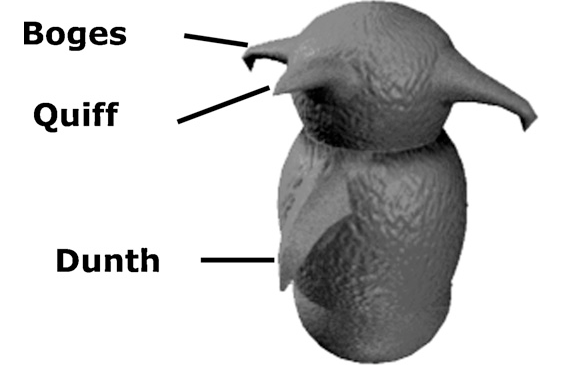 Figure 3: Parts of a Greeble.
Figure 3: Parts of a Greeble.
The participants in the “expert” test group, were given extensive training to make them experts at greeble recognition. This was done by having them practice greeble recognition at the family, gender, and individual levels (2) as shown in Figure 1. The expert participants completed 60 trials in which they labeled novel greebles to confirm that they were experts. Both groups did 360 randomized trials where the response time and level of accuracy was collected (2).
Their results showed that on average, the expert category responded faster and more accurately than the novice group. Their results indicate that more exposure to fine-tuned and novel distinctions leads to better recognition overall (2). This is significant for the universal patterns of thought as it implies that the more aware that one is of the Distinctions around them, the more accurate and quick they will be at recognizing and thinking with them (2).
Another interesting Greeble experiment was done by Bukach et al. (3) in 2012. They replicated the above experiment with a prosopagnosic (a person who has a neurological condition where they cannot Distinguish faces). They hypothesized that a prosopagnosic would have difficult reaching the expert level of Greeble Distinguishing (3). The experiment was inspired by the studies on neurotypical participants that claim that there is an area of the brain that recognizes faces.
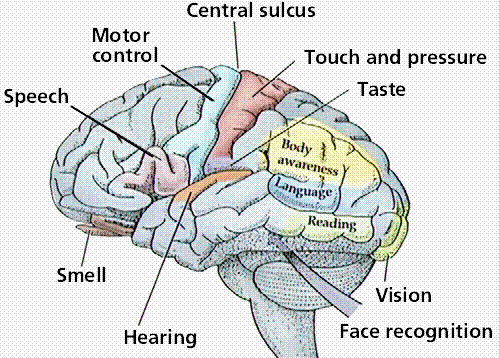 Figure 4: The bottom right of the figure shows where the proposed "face recognition" area of the brain is.
Figure 4: The bottom right of the figure shows where the proposed "face recognition" area of the brain is.
This subject's anterior temporal lobe was damaged in a car accident, so it was predicted that they would not be able to distinguish these Greebles, let alone become an expert in them. Bukach et al. replicated Gautheir and Tarr's 1997 experiment.
As predicted, the impaired participant performed significantly worse than the control participants (3). In order to make the necessary distinctions, he had to use alternative strategies such as figuring out the family (part-whole system) that the greeble belonged to first, and then figuring out its individual identity (2). While the prosopagnosic required extra trials to reach the expert qualifications, it is notable that the participant with prosopagnosia could eventually reach “expert” status. This indicates that even people who are impaired in their distinction-making can use their strengths in other structural thinking patterns to make up for their deficit (2).
References:
1. Gauthier, I., and M. J. Tarr. 1997. “Becoming a ‘Greeble’ Expert: Exploring Mechanisms for Face Recognition.” Vision Research 37 (12): 1673–82.
2. D., Cabrera, Cabrera L., and E. Cabrera. 2020. “A Literature Review of the Universal Patterns and Atomic Elements of Complex Cognition.” Journal of Applied Systems Thinking 20: 6.
3. Bukach, Cindy M., Isabel Gauthier, Michael J. Tarr, Helena Kadlec, Sara Barth, Emily Ryan, Justin Turpin, and Daniel N. Bub. 2012. “Does Acquisition of Greeble Expertise in Prosopagnosia Rule out a Domain-General Deficit?” Neuropsychologia 50 (2): 289–304.
.png?width=150&height=150&name=CRL%20GOAT%20Logo%20(4).png)


